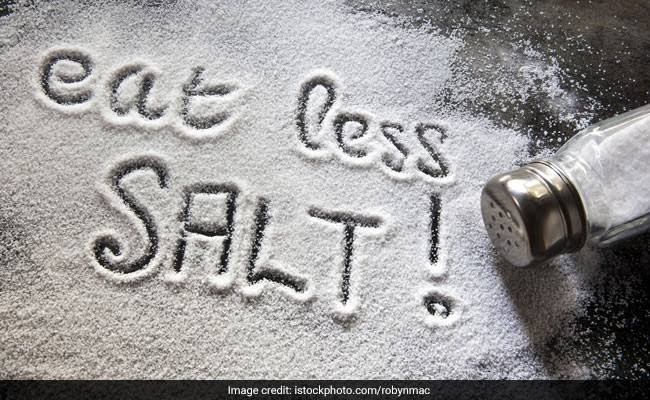
Beware the whites.” A popular saying advises rationing the consumption of both salt and sugar, due to their unhealthy effects on weight and health. From this point of view, nutritionist Dalal Ahmed Al-Yafawi explains to the readers of carebeautyco.com that “the body needs about 1.5 grams of sodium, per day, but most people do not adhere to the aforementioned amount, as food is full of salt, in addition to the habit of adding salt to food, at the table. Even before tasting the last! She adds that “excessive salt intake may lead to stroke, heart disease and high blood pressure”… The specialist calls for the complete abstinence of salt consumption from individuals aged 51 years and over, diabetics, chronic kidney failure patients and high blood pressure.
Concerning the categories that consume salt, the following indicators are indicative of an excessive intake of it:
1 Swelling of the stomach: Stomach swelling or fullness, a condition that indicates one of the most common short-term effects of excessive salt intake, which helps the body retain water, for excess fluid to accumulate as a result. In addition, parts of the body, such as: the face, hands, feet, and ankles, are likely to swell as a result of excessive salty eating.
2 High blood pressure: There are many reasons why one may complain of high blood pressure; One reason has to do with excessive sodium consumption, a condition that makes it difficult for the kidneys to get rid of fluids that they don’t need. As a result, blood pressure rises.
3 Thirst: The body draws water from the cells, which causes a feeling of extreme thirst. Of course, drinking water helps “neutralize” the excess salt, while of course “revitalizing” the cells.
Salt in the diet
People who eat a lot of salt often eat more food
Research indicates that the weights of individuals, who follow a diet rich in salt, are often greater, compared to individuals who are legal in eating the substance, and the body mass index records a higher number in the former ranks, compared to the latter, as well as in terms of higher waist circumference and higher waist-height ratio . Therefore, it is easy to assume that a diet rich in salt promotes weight gain, noting that there are alternative explanations for the link between excessive salt consumption and weight gain, as follows:
• Studies have noticed that people who eat a large amount of salt often eat larger quantities of food, and therefore they consume more calories on a daily basis.
• A “poor” quality diet is rich in ultra-processed foods (snacks), rather than specifically salt content, justifying weight gain in this case.
• Salt is rich in sodium, the nutrient that every body needs, albeit in smaller quantities than is usually consumed, as the body is “designed” to regulate the concentration of sodium tightly. Eating salty foods increases the concentration of sodium in the body. In the body’s natural response to this, there is an increase in thirst and a decrease in urine production. Then, the body retains the largest possible amount of water to reduce the sodium concentration to the preferred level, causing fluid retention, which is manifested in excess weight on the scale. However, it is not only related to water weight, but also to the high percentage of body fat in particular, as a result of excessive consumption of salt. In this context, studies indicate that water retention may cause an increase of up to one kilogram on the scale. So, most people who have eaten a salty meal the night before will notice an increase in weight the next morning. However, it does not mean that eating diets rich in sodium (salty foods) increases fat storage in the body, compared to foods rich in fat and low in salt. Therefore, any excess weight on the scale may just be water weight
Regulate the consumption of these foods
Types of foods that are high in salt include fast food
Foods that are high in salt include: snacks, fast food, chips, fried foods, processed foods, restaurant meals, canned foods, meat, cereals, pickles, spices, ready-made sauces (soy sauces, ketchup, BBQ…) and processed frozen foods (pies, pizzas. …). In addition, there are “hidden” sources of salt, such as: sandwiches, pizza, bread and canned soups… In this context, the nutritionist, Dalal Ahmed Al-Yafawi, calls for rationing in eating foods rich in sodium, because the latter are relatively high in calories, and they are easy to eat. Which explains the relationship between excessive sodium consumption and weight gain






